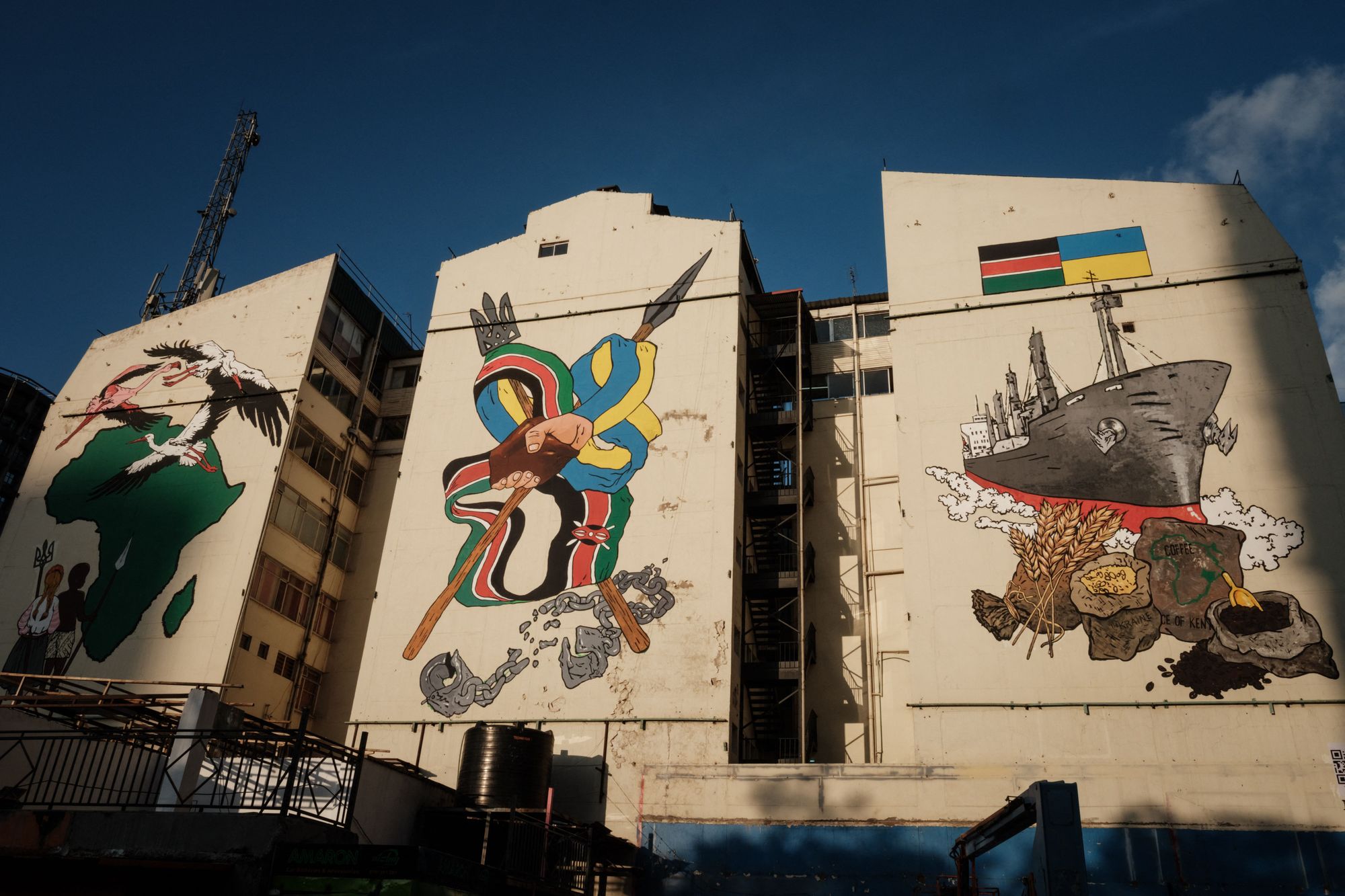Putin attempts to bribe African leaders with free grain after pulling out of grain deal

Russian dictator Vladimir Putin told African leaders at the Africa-Russia Summit on July 27 that Russia is ready to offer their countries grain supplies to replace Ukrainian grain exports that are now virtually blocked after Russia pulled out of the Black Sea Grain Initiative earlier this month.
Putin promised to replace Ukrainian products both through tens of thousands of metric tons of free supplies and on a commercial basis, Reuters reports.
Russia is expecting a record grain harvest and "will be ready to provide Burkina Faso, Zimbabwe, Mali, Somalia, Central African Republic, and Eritrea with 25-50,000 (metric tons) of free grain each in the next three to four months," Putin told the summit.
The Kremlin leader also promised free delivery to consumers and stressed that in 2022, Russia exported 60 million metric tons of grain, including 48 million metric tons of wheat.
Reacting to Putin's proposal, Zimbwabwe's President Emmerson Mnangagwa said that he is grateful for the offer but his country is "not in any grain deficit at all," Sky News reported.
U.N. Secretary-General Antonio Guterres commented that a "handful of donations to some countries" will not mitigate the fallout of the grain deal's collapse.
Other leaders were more receptive to Putin's offer. Uganda's Foreign Minister Jeje Odongo reportedly said that Russia's decision to withdraw from the deal was "understandable."
Sawadogo Mahamadi, the head of Burkina Faso's Chamber of Commerce and Industry, appreciated the offer of Russian grain, saying that "Africa needs these vital products today," according to Sky News.
Russia withdrew from the Black Sea Grain Initiative on July 17, effectively terminating the deal. The agreement, brokered in July 2022 by Turkey and the U.N., allowed Ukraine to export its agricultural products through its Black Sea ports.
The move sparked fears of food insecurity worldwide as prices of grain products began to rise following the deal's collapse.
According to Deputy Chairman of Ukraine's National Bank Serhii Nikolaichuk, the country expects to lose $2 billion in profits from grain exports this year unless the grain deal is revived.
Nikolaichuk also said that it is unlikely that the initiative will be restarted before the war ends, Sky News reported. He stressed that alternative export corridors, such as the EU's solidarity lanes, are now vital for Ukraine.
Putin sought to justify the decision to terminate the initiative in a letter published ahead of the summit. The dictator claimed that the deal only served to enrich Western businesses and that promises about facilitating Russia's grain and fertilizer exports had not been met.
Ukraine's grain exports are vital to the world's food supply. Before the full-scale invasion, Ukraine was the fifth-largest wheat exporter globally. The grain deal had allowed for nearly 33 million metric tons of food to be exported through Ukrainian ports while it was in force, according to the U.N.

Prior to the deal's collapse, the Kremlin said that Russia's demands regarding logistics, insurance, and movement of money when paying for Russian products had not been addressed by the West.
The two-day Africa-Russia summit started in St. Petersburg on July 27. The Kremlin is looking to tighten economic cooperation with African countries amid deepening isolation from the West.
According to Russian officials, 49 out of 54 invited countries have confirmed participation. Only 17 of them will be represented by their heads of state, however. This is significantly less than during the inaugural Sochi summit in 2019, where 43 heads of state took part in the event.












